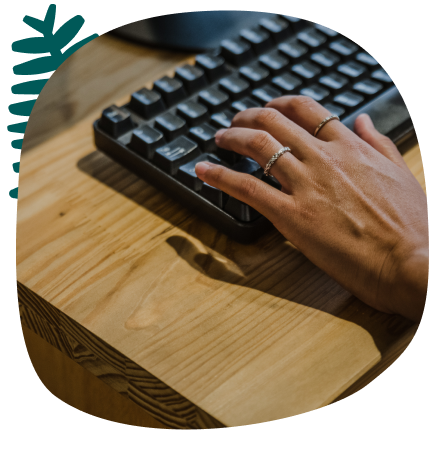Protect What Matters
As a member-owned and operated credit union, Gather's commitment to your financial security is at the core of everything we do. Cybersecurity is more important than ever, and staying informed is your best defense against scams, fraud, and identity theft.
We work hard to stay on top of evolving threats and share practical advice so you can keep your accounts and personal information safe. Your safety is our priority, and together we can help build stronger defenses against fraud.
Stay Safe Online: Tips for Protecting Your Information
1. Think Before You Click
Be cautious with emails, links, or messages that seem suspicious or too good to be true. Avoid clicking on unexpected attachments or pop-ups that promise unrealistic offers.
2. Use Strong, Unique Passwords
Create complex passwords using a mix of letters, numbers, and symbols—and avoid using the same password across multiple sites. Consider using a password manager for added security.
3. Keep Software and Devices Updated
Install updates for your operating system, web browser, and apps as soon as they become available. Updates often include critical security patches that help keep your devices safe.
4. Enable Multi-Factor Authentication (MFA)
Whenever available, turn on MFA for an added layer of protection. It requires more than just your password to access your accounts.
5. Use Secure Connections
Only enter sensitive information on websites with HTTPS in the address. Avoid logging in to financial accounts on public or shared Wi-Fi networks.
6. Protect Your Personal Information Offline
- Shred documents before throwing them away.
- Memorize your PINs and avoid writing them down.
- Don’t carry unnecessary personal documents like your Social Security card.
7. Monitor Your Accounts Regularly
Check your bank and credit accounts frequently for suspicious activity. Report anything unusual right away.
8. Be Cautious with Public Computers
Avoid logging into personal accounts on public or shared computers, which may be infected with malware or tracking tools.
Home Computer & Network Safety
- Use a firewall to help block unauthorized access to your home network.
- Install reputable antivirus software and keep it up to date.
- Disconnect from the internet when not in use.
- Back up your data regularly to an external drive or secure cloud service.
Just to Be on the Safe Side
- Review your credit report annually at annualcreditreport.com
- Create and safely store a list of your credit card accounts and customer service numbers.
- Limit the credit offers you receive by calling 1-888-5-OPTOUT.
- Remove your name from marketing lists by visiting dmachoice.org
Learn More
For more information on online safety, identity theft prevention, and how to recognize scams, visit:
- Federal Trade Commission - Consumer Advice
- National Cybersecurity Alliance
Cybersecurity is a shared responsibility. By staying informed and taking proactive steps, you can help protect what matters most—your finances, your identity, and your peace of mind.



